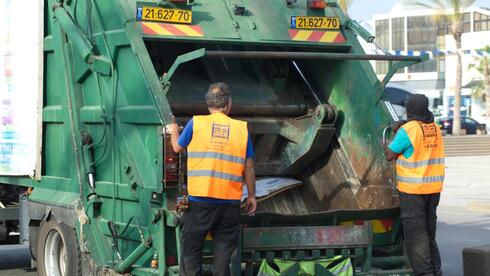“Trash doesn’t take vacations—not even during wars or pandemics. The average Israeli produces half a ton of garbage a year, and that number keeps rising. As the population grows, so does the trash,” says Daniel Leventhal, chairman of RGA.
Formerly known as Value Capital—and before that, Psagot—RGA collects and disposes of waste for local authorities. On Wednesday, it began trading on the Tel Aviv Stock Exchange under its new name, jumping 8% on debut.
Its owners prefer to call it an “environmental services” company, but RGA is the first TASE-listed firm whose sole business is waste collection. Other public companies, like Veridis and Lahav, operate in the sector through subsidiaries but focus elsewhere.
RGA has been in operation for 40 years and went public through a reverse merger: Value Capital, previously owned by Rani Zim, had sold off its assets to cover debts after a failed business run. The public shell was then acquired by Psagot’s former CEO, Yaniv Bender, renamed Value Capital again, and purchased RGA for about NIS 80 million before merging the two.
The deal came with a NIS 94 million tax credit from RGA’s debts. The company now trades at a market cap of NIS 150 million —up 120% since the start of the year—as investors bet the new business will deliver profits. It currently serves about 50 municipalities.
“People ask if I’m Tony Soprano”
In pop culture, waste collection is often linked to organized crime. How does that sit with Leventhal?
“I’ve been asked if I’m Tony Soprano. Many people say this is a business for criminals, but I haven’t encountered that. Maybe it’s fun for TV, but I win tenders from municipalities—it’s all transparent. After 30 years in finance and investments, I’ll admit I was hesitant at first.”
The numbers, however, are solid: RGA posted annual revenue of NIS 400 million and a net profit of NIS 14 million in 2024. Its order backlog—signed contracts with municipalities—is approaching NIS 1 billion.
The company employs around 2,000 people, half of them contractors, and owns its fleet of garbage trucks and street-cleaning equipment. “It’s a stable sector—there will always be trash. Municipalities pay on time. There’s no risk of client bankruptcies, and they’re often looking to expand services to residents,” Leventhal says.
Tenders, he adds, provide multi-year security. “Municipalities prefer financially strong contractors over someone who offers a lower price but can’t deliver after a year. The scoring favors financial stability over price.”
Asked why Psagot failed under Rani Zim’s ownership, Leventhal cites two main reasons. “First, macroeconomic changes: Psagot was bought in 2021 with heavy leverage, and interest rates spiked. Zim paid 405 million shekels for the company, taking on about 200 million in debt. Rising rates changed public demand for financial products, and profitability fell.”
The bigger hit came from nonbank lending Zim added to the company. “There was a wave of bad debts from clients who took credit and couldn’t repay,” Leventhal says.
